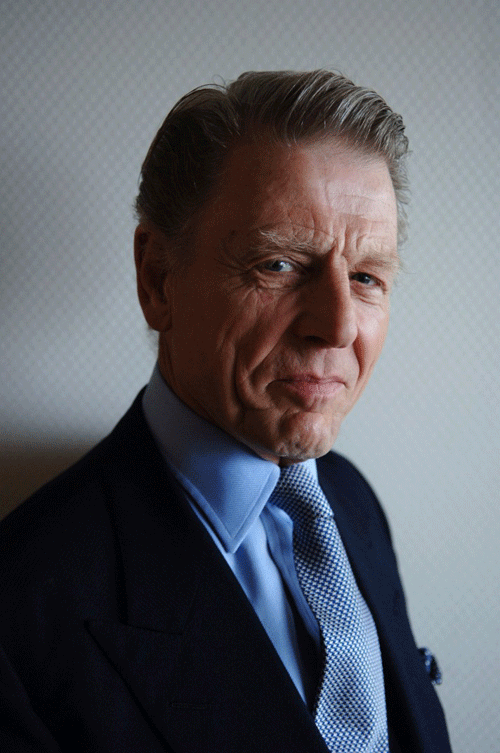Passed/Failed: An education in the life of Edward Fox, actor
'Harrow wasn't the school for me'

Your support helps us to tell the story
From reproductive rights to climate change to Big Tech, The Independent is on the ground when the story is developing. Whether it's investigating the financials of Elon Musk's pro-Trump PAC or producing our latest documentary, 'The A Word', which shines a light on the American women fighting for reproductive rights, we know how important it is to parse out the facts from the messaging.
At such a critical moment in US history, we need reporters on the ground. Your donation allows us to keep sending journalists to speak to both sides of the story.
The Independent is trusted by Americans across the entire political spectrum. And unlike many other quality news outlets, we choose not to lock Americans out of our reporting and analysis with paywalls. We believe quality journalism should be available to everyone, paid for by those who can afford it.
Your support makes all the difference.Edward Fox OBE, 70, is a star of big and small screen, and stage. His many films include The Day of the Jackal and The Importance of Being Earnest, and his television work includes Edward and Mrs Simpson. He is the brother of the actor James Fox and is married to the actress Joanna David. He is currently starring in John Mortimer's Legal Fictions at the Savoy Theatre, London, which runs until 26 April
Miss Steele was a lady with beautiful soft, flowing silver hair, and she ran a marvellous infants school in the darkest years of the war. We'd moved from Chelsea to Cuckfield, in West Sussex, and I went to her school in Haywards Heath. There was no money around, so how she got paid I don't know. I remember happiness there.
At eight, I was a border at Ashfold School near Handcross, also in West Sussex. It was run by such kind, brilliant, eccentric and wonderfully English staff. Miss Ticehurst, who was known as "Tishy" and taught music, was one of the great teachers. The headmaster was James Harrison. If there was a caterpillar on his lettuce, he would eat it, to teach us not to be dripping wet. There was no question of complaining.
If a misdemeanour was committed but no one admitted to it, he would line up and beat the whole school with a hairbrush. Most of us would receive just a tap, but the person who had actually done it would receive something harder, to show him that "Jim" knew.
I almost didn't get into Harrow. I got three per cent in maths in the entrance exam, but I got in because my father had gone there. My younger brother James was two years behind me in the same house. One of the best things about the school was the Harrow songbook – we were always singing "Forty Years On". Winston Churchill came twice to the ceremony known as "Songs", which he loved.
I don't think it was the school for me – I would have liked more of an accent on artistic things. Music was certainly taught, but as a 13-year-old boy, you are at the mercy of the ethos of the school. There was acting, but by today's standards for young people, it was pretty drearily done. Drama was run, very worthily, by a very good Shakespearean scholar, and I was bored to death by it. It wasn't their fault, it was mine. I did no acting and would rather have flown to the moon than got on to the stage.
Work in general I did apply myself to – and wasn't very successful. I liked French and German – language is what appeals to one. O- and A-levels? I suspect very few. I wasn't expelled but I left early. I was probably pretty useless to the house and I had had enough. I expect my father was glad to be relieved of a year's fees, poor man.
I was in the Army at just 18, and I did like my two years of national service. When I came out, I had no particular wish to do anything much, but there must have been an itch towards being an actor because I found myself drifting towards drama school.
I left Rada's two-year course before the end. It was undoubtedly useful to many, but not to me. I did enjoy the chance to show off and behave badly, and I met some wonderful people who were very helpful. There were some good teachers, and to this day, I follow the lessons in speaking from Clifford Turner, but in terms of real significance, it doesn't compare to an apprenticeship in repertory theatre.
I had auditioned for Glen Byam Shaw, a wonderful Stratford Festival director. He advised my father that there wasn't a glimmer of talent in me, but added that if I found myself reciting poetic speeches while walking down the street, just possibly it was a sign of ability. This was something I in fact did, and have done throughout my life. Lady Thatcher once asked me, "Do you have an office?" I said, "No, the street is my office".
Join our commenting forum
Join thought-provoking conversations, follow other Independent readers and see their replies
Comments